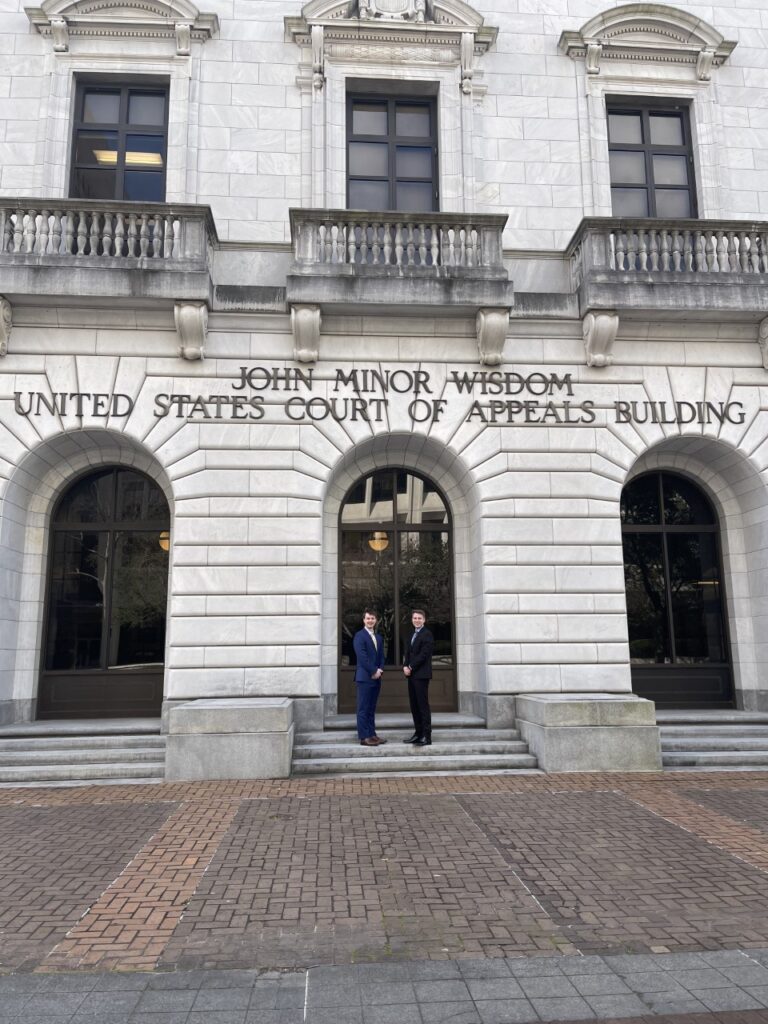Congratulations to the Jenkins Finalists
After an exciting weekend of strong oral advocacy among the teams in the Jenkins Honors Moot Court Competition, two teams are advancing to the final round:
Samantha Dorning and Ciara Hudson
Lauren Hudon and Mikela Ryan
The final round will take place on April 4 at the Law School. Best wishes to both teams as they head into the final round.

